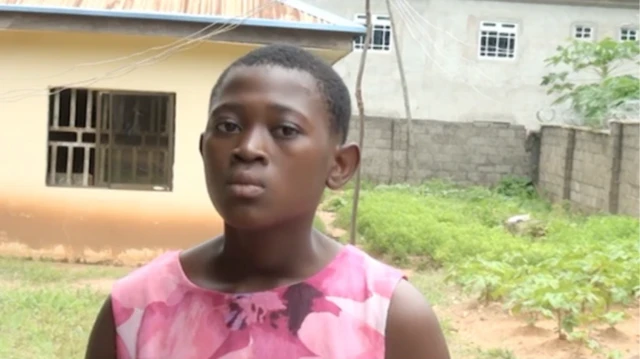The protracted Ochanya Case against serial child rape and death exposed Nigeria’s flawed legal system. Calls for appeal and judicial reform are ongoing for justice.
The tragic death of Elizabeth Ochanya Ogbanje in October 2018 was a devastating indictment of the systemic failure to protect children from sexual and gender-based violence (SGBV) in Nigeria. At just 13, Ochanya, an internally displaced orphan, allegedly died from health complications linked to years of serial rape and abuse by her guardian, Andrew Ogbuja, and his son, Victor Ogbuja, in Benue State. Her harrowing ordeal and death immediately became a national symbol for the crisis of SGBV and the pervasive culture of impunity that often shields high-profile perpetrators. The resulting legal battle, marked by controversy and a highly criticized acquittal, has transformed the Ochanya Case into a critical legal and socio-political touchstone for human rights advocates and a focus for judicial reform.
The allegations and immediate aftermath
The horrifying details of Ochanya’s suffering, revealed post-mortem, sent shockwaves across Nigeria. The alleged perpetrators held positions of influence, underscoring the severe power imbalance inherent in many SGBV cases. The accused guardian was Andrew Ogbuja, a former senior lecturer.
Following her death, the outrage transcended local boundaries, fueled by civil society organizations (CSOs) and youth activists who popularized the hashtag #JusticeForOchanya. The movement demanded immediate accountability, ensuring the case could not be dismissed. This public pressure led to the arrest and prosecution of Andrew Ogbuja, although his son, Victor, has largely evaded capture—a lingering failure of law enforcement.
The legal quagmire: Acquittal and contradiction
The most contentious element of the Ochanya Case remains the judicial outcome. In April 2022, after a protracted trial, a Makurdi High Court delivered a judgment that shocked the nation: Andrew Ogbuja was discharged and acquitted of all four charges, including culpable homicide and rape. The court cited a lack of “sufficient and compelling evidence” connecting the accused to the crime and the resulting death.
This verdict drew fierce condemnation from CSOs, the victim’s family, and the Nigerian Bar Association’s Human Rights Institute (NBA-HRI). Critics argued that the judgment overlooked compelling circumstantial evidence and the victim’s dying testimony. This judicial decision served to deepen public cynicism regarding the integrity of the Nigerian judicial system in handling sensitive SGBV cases, especially where forensic and victim support mechanisms are weak.
Furthermore, in a separate but related trial, Ogbuja’s wife was convicted in a Federal High Court for her passive role in the abuse, demonstrating a stark legal contradiction regarding the same incident. This disparity intensified calls for the Benue State Government to swiftly file an appeal at the Court of Appeal to review the highly controversial acquittal in the primary Ochanya Case.
Systemic Failures and Legislative Gaps
The Ochanya Case is a stark mirror reflecting critical vulnerabilities within Nigeria’s protective and punitive frameworks for SGBV.
- Weak Enforcement of Laws: While Nigeria has progressive laws like the Child’s Rights Act (CRA) and the Violence Against Persons Prohibition (VAPP) Act, the inconsistent application of these laws, particularly evident in the failure to apprehend Victor Ogbuja, highlights the systemic failures of the justice delivery chain.
- Lack of Specialized Resources: Effective SGBV prosecution demands specialized police training, reliable forensic labs, and safe shelters. The chronic lack of funding and political will often leads to poor investigations and evidence mishandling, contributing directly to low conviction rates, even in high-profile cases like the Ochanya Case.
- Societal Impunity: The case also brought to light the deep-seated cultural and patriarchal norms that often minimize the severity of the crime and create an environment of impunity for perpetrators, discouraging victims from reporting and potentially influencing judicial perspectives.
A legacy of unfinished justice
Elizabeth Ogbanje’s tragic life and the subsequent legal battle have left an indelible mark on Nigeria’s human rights landscape. Her name is now synonymous with the urgent call to end impunity and guarantee the rights of the child. The demands of the “Justice for Ochanya” movement remain the same: the State must vigorously pursue the appeal of the acquittal and ensure that all perpetrators are brought to justice. The Ochanya Case serves as a grim but vital reminder that until Nigeria’s legal and social structures prioritize the protection and justice of its most vulnerable citizens, the fight against SGBV remains a critical national challenge.



